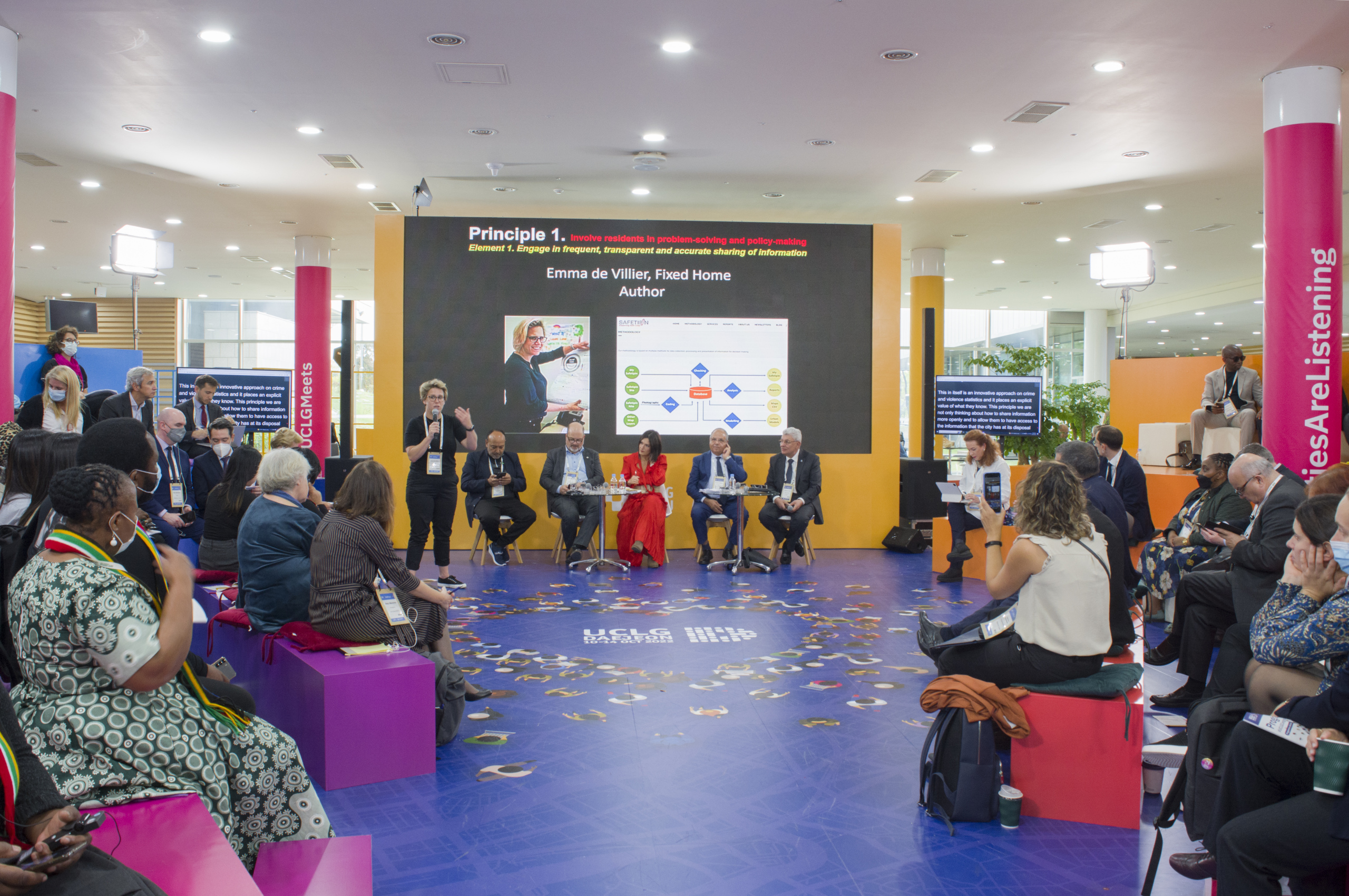Trust is essential to building healthy societies; however, recently citizens’ trust in government institution has been declining. In his annual address, “Our Common Agenda,” the United Nations Secretary-General has called for a new social contract of the 21st century, where trust plays a central role.
The last Town Hall of the UCLG Congress, held on Friday 14 October, focused on rebuilding international trust, which is a foundational piece of the success of a wide range of public policies, especially to tackle long-term societal challenges such as climate change or supporting aging populations. Research has shown that this lack of trust is present in all sectors of society, and is felt especially among women, people with low income, persons with disabilities, minorities, and young people. Climate change, the COVID-19 pandemic, and other crises, along with misinformation and the emergence of populist leaders, has led to further declines in the public’s trust.
The distrust leads to the rejection of government decisions, a lack of respect for rules, lower voter turnout, fiscal evasion, and even violence. Furthermore, the lack of trust and its resulting impacts lead to a shortage of the solidarity needed to jointly address and prevent various threats, including critical environmental challenges.
Two core challenges have emerged. One is to create a mutual understanding among all parties of the responsibilities and rights of local government, encompassing the roles of the provider, educator, innovator, regulator, and enforcer. In order to carry out these roles, the local government needs to exhibit foundational attributes, which include humanity, transparency, capability, and reliability.
The second challenge is to create a mutual understanding among all parties of the responsibilities and rights of residents. These include, as examples, the right to exercise civil rights peacefully; access to political participation mechanisms to ensure healthy democracies and societies; the rights to use public resources consciously and take advantage of the opportunities provided by the institutions, among others; and the right to hold governments accountable via inclusive, transparent, and accessible mechanisms and platforms.
To develop a new social contract, an enabling environment governed by principles of inclusion, citizen commitment, and subsidiarity among governments is required. Finally, the set of recommendations to achieve such a contract include five main points: (1) Draft a new social contract; (2) Develop a handbook or code to guide its implementation; (3) Acknowledge the people and places that have adopted the new social contract; (4) Working collaboratively, establish a research and evaluation process to disseminate and monitor best practices under the new social contract; (5) Communicate the results, through the Global Task Force, in international meetings especially to the Summit of the Future.
Moving forward, local governments must share the role of both implementing the recommendations and providing an enabling environment to build a new social contract that is fit for purpose in the 21st century and ready to incorporate current and future citizens’ concerns.

